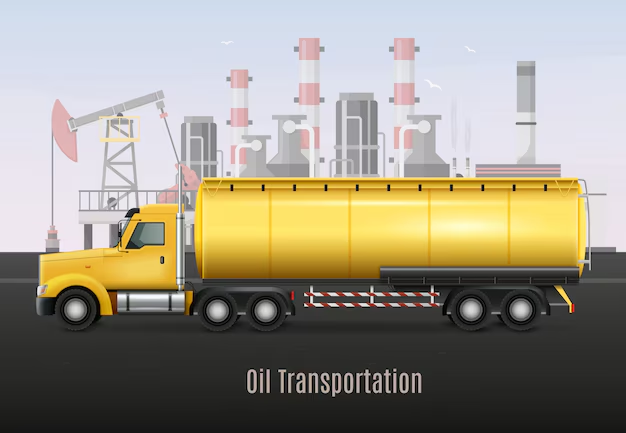Introduction to the Fuel Tank Industry
fuel tank news may not be the first thing that comes to mind when thinking about transportation, but they’re critical components in industries such as automotive, aviation, and marine. These tanks store and supply fuel to engines, making them indispensable for mobility and logistics. Understanding the latest developments in fuel tank technology is crucial for professionals across various sectors, as it affects performance, efficiency, and safety.
In this blog post, we’ll explore the dynamic world of fuel tanks, from their historical evolution to current trends and future predictions. Whether you’re an engineer, a technician, or someone curious about this vital industry, you’ll gain valuable insights into the innovations driving change in fuel tank technology.
The Evolution of Fuel Tank Technology
Fuel tanks have come a long way since their rudimentary beginnings. Early designs were simple metal containers, often prone to leakage and corrosion. Over time, advancements in materials and engineering have transformed these basic tanks into sophisticated systems that prioritize safety and efficiency.
From Metal to Modernity
Initially, fuel tanks were made from steel due to its strength and availability. However, steel tanks were heavy and susceptible to rust, which led to the development of lighter alternatives like aluminum and plastic. Plastic tanks, in particular, gained popularity for their corrosion resistance and design flexibility. This shift in materials marked a significant step forward in tank technology.
Safety Takes Center Stage
Safety has always been a top priority in fuel tank design. Over the years, innovations like internal baffles, which prevent fuel sloshing, and anti-siphoning mechanisms have been introduced to enhance safety. These features not only improve stability but also reduce the risk of accidents and environmental hazards.
Design and Capacity Evolution
The design of fuel tanks has evolved significantly to accommodate different vehicle types and fuel capacities. Innovations in shape and size have allowed for better space utilization and improved fuel efficiency. For instance, the integration of fuel cells in hybrid vehicles showcases how tank design continues to adapt to emerging technologies.
Current Trends and Innovations
The fuel tank industry is constantly evolving, driven by technological advancements and environmental considerations. Let’s explore some of the most exciting trends shaping the future of fuel tanks.
Environmental Sustainability
With growing concerns about climate change, the push for sustainable solutions has intensified. Fuel tanks are no exception. Manufacturers are now focused on reducing emissions and adopting eco-friendly materials. Bio-based polymers and recyclable composites are being explored to minimize the environmental impact of tank production and disposal.
Digital Monitoring Systems
Digital technology is revolutionizing fuel tank management. Advanced sensors and telemetry systems allow real-time monitoring of fuel levels, temperature, and pressure. This data-driven approach enhances operational efficiency by enabling predictive maintenance and reducing downtime. Additionally, digital systems improve inventory management, ensuring timely refueling and cost savings.
Enhanced Safety Measures
Safety remains a paramount concern, and new innovations continue to emerge. Impact-resistant tank designs and fire-retardant materials are being developed to withstand extreme conditions. Furthermore, smart tank systems equipped with crash sensors and automatic shut-off valves enhance passenger safety, making them a valuable addition to modern vehicles.
The Impact of Fuel Tank News

Staying informed about the latest fuel tank developments is essential for industry professionals. Here’s how these updates are influencing various sectors and global markets.
Automotive Advancements
In the automotive industry, fuel tank innovations directly affect vehicle performance and efficiency. Automakers are adopting lightweight materials and advanced designs to reduce fuel consumption, aligning with stricter emission regulations. Fuel tank news keeps manufacturers updated on cutting-edge technologies, helping them maintain a competitive edge.
Aviation Innovations
For the aviation sector, fuel tank technology plays a crucial role in flight safety and operational efficiency. Digital monitoring systems provide pilots with real-time data, ensuring optimal fuel management during flights. Additionally, advancements in composite materials contribute to weight reduction, enhancing aircraft performance and range.
Marine Industry Adaptations
In the marine industry, fuel tank developments impact vessel performance and environmental compliance. Enhanced safety features and eco-friendly materials are essential for minimizing the risk of fuel spills and pollution. Staying informed about fuel tank news helps maritime businesses make informed decisions about vessel upgrades and maintenance.
Future of Fuel Tanks
Looking ahead, the future of fuel tanks promises exciting possibilities and challenges. Here are some predictions on what to expect.
Potential Breakthroughs
As technology continues to advance, we can anticipate breakthroughs in fuel tank design and materials. Hydrogen and electric vehicles are likely to drive innovation, leading to the development of specialized tanks for these alternative fuels. Lightweight, high-capacity tanks will become increasingly important to support extended ranges and fast refueling.
Addressing Challenges
The transition to sustainable energy sources poses challenges for traditional fuel tanks. Manufacturers must adapt to changing market demands while ensuring compliance with environmental regulations. Balancing cost-effectiveness, performance, and sustainability will be a key challenge for the industry.
Integration with Smart Infrastructure
The integration of fuel tanks with smart infrastructure is another exciting prospect. Connected systems will enable seamless communication between vehicles and refueling stations, optimizing routes and reducing wait times. This connectivity will enhance the overall travel experience and contribute to the broader smart city ecosystem.
Conclusion
The world of fuel tanks is a dynamic and vital part of various industries, influencing everything from vehicle performance to environmental sustainability. Staying informed about fuel tank news is essential for professionals seeking to drive innovation and improve safety across sectors.

